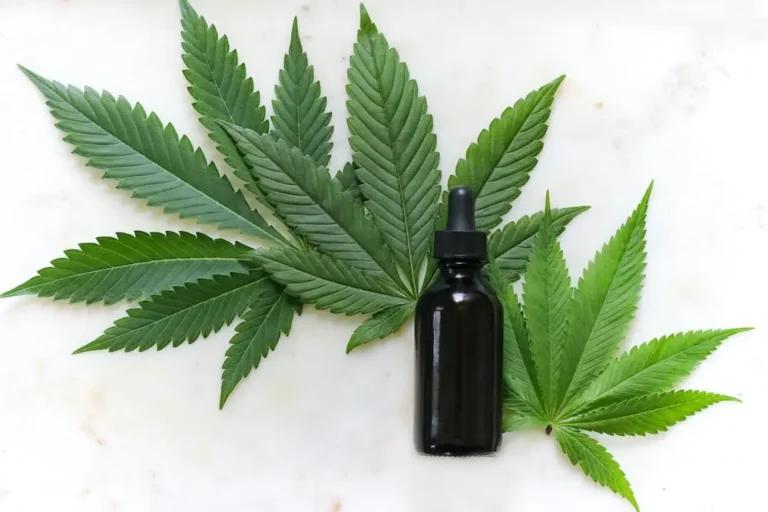CBD, short for cannabidiol, has gained significant popularity in recent years for its potential therapeutic benefits. From treating insomnia and anxiety to managing chronic pain, CBD has been hailed as a natural remedy for various ailments. However, with the increasing interest in CBD, many people are left wondering about its legal status. Is CBD oil legal? In this comprehensive guide, we will delve into the legality of CBD and explore its potential benefits and risks.
What is CBD?
Before diving into the legal aspects, let’s first understand what CBD is. CBD is a compound found in the cannabis plant. It is one of over a hundred cannabinoids present in cannabis, along with THC (tetrahydrocannabinol). Unlike THC, CBD does not induce psychoactive effects or the “high” typically associated with marijuana use. CBD can be derived from both hemp and non-hemp plants, but hemp-derived CBD is more commonly available. Hemp and cannabis come from the Cannabis sativa plant.
The legal status of CBD in the United States
The legal status of CBD in the United States is complex and can vary depending on various factors. In 2018, the U.S. Congress passed the Agriculture Improvement Act, commonly known as the Farm Bill. This legislation removed hemp from the federal Controlled Substances Act, effectively legalizing the production and sale of CBD derived from hemp. In essence, this means that CBD is legal if it comes from hemp, but not if it is cannabis-derived (marijuana) even though it is the exact same molecule. Currently, many people obtain CBD online without a medical marijuana license, which is legal in most states.
The 2018 Farm Bill and the legalization of hemp
The 2018 Farm Bill was a significant milestone in the legalization of hemp and CBD in the United States. It redefined hemp as an agricultural commodity and removed it from the list of controlled substances. To qualify as hemp, the plant must contain no more than 0.3 percent THC content, the psychoactive compound in marijuana. The Farm Bill opened up opportunities for farmers to cultivate hemp and for businesses to produce and sell hemp products including CBD.
The legal landscape of CBD in different countries
The legality of CBD varies not only across states in the United States but also across different countries. While some countries have legalized CBD for medicinal or recreational use, others have strict regulations or consider it illegal. Here’s a brief overview of the legal status of CBD in some countries:
- United States: CBD derived from hemp is legal at the federal level, but individual states may have their own regulations
- Canada: CBD is legal for both medicinal and recreational use
- United Kingdom: CBD is legal as long as it contains less than 0.2% THC
- Australia: CBD is legal for medicinal use with a prescription
- Germany: CBD is legal for medicinal use with a prescription
It’s important to research and understand the specific laws and regulations regarding CBD in your country or state before using it.
Differentiating between CBD and THC
While CBD and THC are both cannabinoids found in cannabis, they have distinct properties and effects. CBD is non-psychoactive, meaning it does not produce the intoxicating effects associated with THC. On the other hand, THC is known for its psychoactive effects and is responsible for the “high” experienced when using marijuana. This differentiation is crucial in understanding the legal status of CBD, as THC remains illegal in many states.
State laws regarding CBD
Although the 2018 Farm Bill legalized hemp-derived CBD at the federal level, individual states have the authority to regulate CBD within their borders. This has led to a patchwork of laws and regulations across the country. While many states have embraced the legalization of both hemp and CBD, others have stricter regulations or have not fully aligned with federal law. It is essential to be aware of the specific laws and regulations in your state before purchasing or using CBD products.
FDA regulations on CBD products
The U.S. Food and Drug Administration (FDA) plays a crucial role in regulating CBD products. As of now, the FDA has only approved one CBD-based medication called Epidiolex for the treatment of certain types of epilepsy. However, the FDA has not approved CBD for other uses, such as anxiety or pain management. The agency is actively exploring regulatory pathways for CBD and has issued warning letters to companies making unsubstantiated health claims about their CBD products. The federal government has not yet approved the use of CBD in any dietary supplement or food.
Health benefits and risks of CBD
CBD has been touted for its potential health benefits, but it’s important to note that scientific research is still ongoing. Some studies suggest that CBD may have anti-inflammatory, analgesic, and anxiolytic properties. It has shown promise in managing epilepsy, the FDA approved Epidiolex for this specific indication. The National Institutes of Health clinical trials database shows more than 160 trials involving CBD that are either active or recruiting. However, more research is needed to fully understand the therapeutic potential of CBD and its long-term effects on various medical conditions. Therapeutic benefits for people with epilepsy, nausea, glaucoma and potentially even multiple sclerosis and opioid dependency disorder are currently being researched.
While generally considered safe, the use of CBD is not without its risks. The FDA has identified potential side effects, including liver damage, drug interactions, drowsiness, changes in appetite, and mood alterations. Additionally, the effects of CBD on pregnant women and breastfeeding mothers are not well understood, and caution is advised. It is important to consult with a healthcare professional before using CBD, especially if you have underlying health conditions or are taking other medications.
Ensuring safety: Tips for choosing CBD products
Given the lack of regulation in the CBD industry, it’s important to be cautious when choosing CBD products. Here are some tips to ensure safety:
- Look for third-party testing: Choose products that have been tested by independent laboratories to verify their quality, purity, and potency
- Check the THC content: Ensure that the CBD product you choose contains less than 0.3% THC to comply with federal regulations. Be careful to not mistake THC products for hemp or CBD products
- Read reviews and research the brand: Look for reputable brands with positive customer reviews and a transparent manufacturing process
- Consult with a healthcare professional: If you’re considering using CBD for a specific health condition, it’s always best to consult with a healthcare professional who can provide personalized advice
Conclusion
In conclusion, the legal status of CBD in the United States is complex and varies from state to state. The 2018 Farm Bill legalized hemp-derived CBD at the federal level, but marijuana-derived CBD remains illegal. State laws regarding CBD can differ, and it is crucial to familiarize yourself with the specific regulations in your state. Additionally, the FDA has only approved one CBD-based medication, and more research is needed to fully understand the potential benefits and risks of CBD. If you are considering using CBD, it is recommended to consult with a healthcare professional to ensure its suitability for your specific needs.
By understanding the legal landscape and staying informed, you can make informed decisions about using CBD and navigate the evolving regulations surrounding this popular compound.
Sources
- CBD: What You Need to Know – CDC
- CBD: Does it work? Is it safe? Is it legal? – AAMC
Medical Disclaimer
NowPatient has taken all reasonable steps to ensure that all material is factually accurate, complete, and current. However, the knowledge and experience of a qualified healthcare professional should always be sought after instead of using the information on this page. Before taking any drug, you should always speak to your doctor or another qualified healthcare provider.
The information provided here about medications is subject to change and is not meant to include all uses, precautions, warnings, directions, drug interactions, allergic reactions, or negative effects. The absence of warnings or other information for a particular medication does not imply that the medication or medication combination is appropriate for all patients or for all possible purposes.








